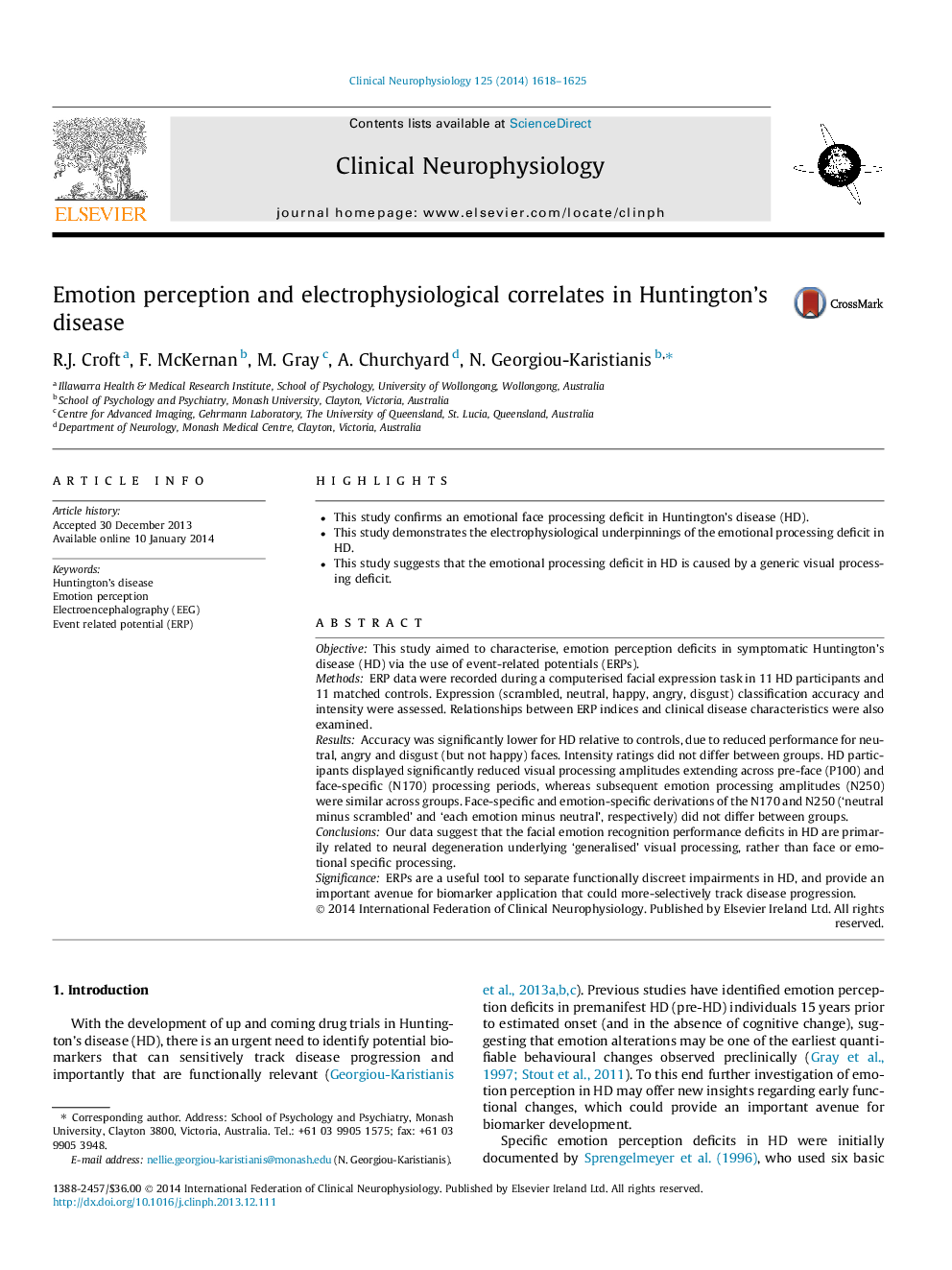| Article ID | Journal | Published Year | Pages | File Type |
|---|---|---|---|---|
| 3043489 | Clinical Neurophysiology | 2014 | 8 Pages |
•This study confirms an emotional face processing deficit in Huntington’s disease (HD).•This study demonstrates the electrophysiological underpinnings of the emotional processing deficit in HD.•This study suggests that the emotional processing deficit in HD is caused by a generic visual processing deficit.
ObjectiveThis study aimed to characterise, emotion perception deficits in symptomatic Huntington’s disease (HD) via the use of event-related potentials (ERPs).MethodsERP data were recorded during a computerised facial expression task in 11 HD participants and 11 matched controls. Expression (scrambled, neutral, happy, angry, disgust) classification accuracy and intensity were assessed. Relationships between ERP indices and clinical disease characteristics were also examined.ResultsAccuracy was significantly lower for HD relative to controls, due to reduced performance for neutral, angry and disgust (but not happy) faces. Intensity ratings did not differ between groups. HD participants displayed significantly reduced visual processing amplitudes extending across pre-face (P100) and face-specific (N170) processing periods, whereas subsequent emotion processing amplitudes (N250) were similar across groups. Face-specific and emotion-specific derivations of the N170 and N250 (‘neutral minus scrambled’ and ‘each emotion minus neutral’, respectively) did not differ between groups.ConclusionsOur data suggest that the facial emotion recognition performance deficits in HD are primarily related to neural degeneration underlying ‘generalised’ visual processing, rather than face or emotional specific processing.SignificanceERPs are a useful tool to separate functionally discreet impairments in HD, and provide an important avenue for biomarker application that could more-selectively track disease progression.
